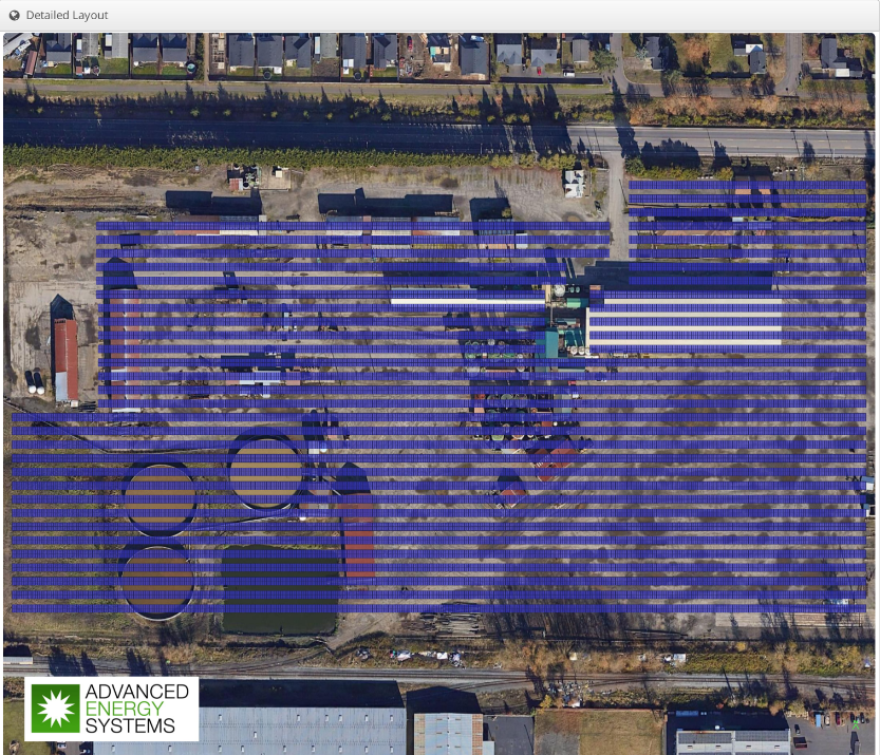An environmental advocacy group wants to turn a shuttered wood treatment plant in Eugene into a solar array.
The controversial J.H. Baxter facility closed last year, after decades of operation. While praised by some for providing jobs to Eugeneans over an 80-year run, the plant was also criticized for noxious odors. Many neighbors in the surrounding Bethel area remain upset over lingering environmental concerns, including dioxins found in their yards and gardens.
Two class action lawsuits have been filed against Baxter by people claiming its emissions have endangered their health and that of the environment.
Lisa Arkin, executive director of Beyond Toxics, and Justin Wilbur, of Advanced Energy Systems, told KLCC that there’s potential in the 42-acre industrial site.
“We envision this as a solar energy generation project that will benefit homes that are currently burdened by high utility bills. And by the specter of all this pollution that has come at them for decades,” said Arkin.
“The system we’re proposing is 11.8 megawatts,” explained Wilbur. “Which could roughly run – preliminary - about 1,272 homes in terms of how much power this could create.”
A smaller proposal is roughly half the size of the first. The projected costs are $22 million and $13 million respectively.

For such a development to happen, the old Baxter site on Roosevelt Boulevard would have to be purchased, and any combination of federal and state grants would have to be applied for and approved. Arkin and Wilbur said that the City of Eugene and utility company EWEB could be partners in such a venture.
The Baxter property is currently being investigated and cleaned-up by the Oregon Dept. of Environmental Quality and EPA, and there’s talk about turning it into a Superfund site which would enable millions of dollars to be used in the effort.
“We know that the community doesn't want another polluter on that site,” said Arkin. “They want something that's ... going to create climate resiliency, and not be environmentally damaging.”
“Maybe the next stage would be something more even beyond resiliency and be a battery backup for the (Bethel) community, and they could discharge that power to certain substations or the community itself,” added Wilbur. “So it's something that you could add on and it's something that we could all feel really positively about, and there's a chance of earthquakes happening in the future.”
J.H. Baxter company president Georgia Baxter did not respond to a request for comment about the proposal.










